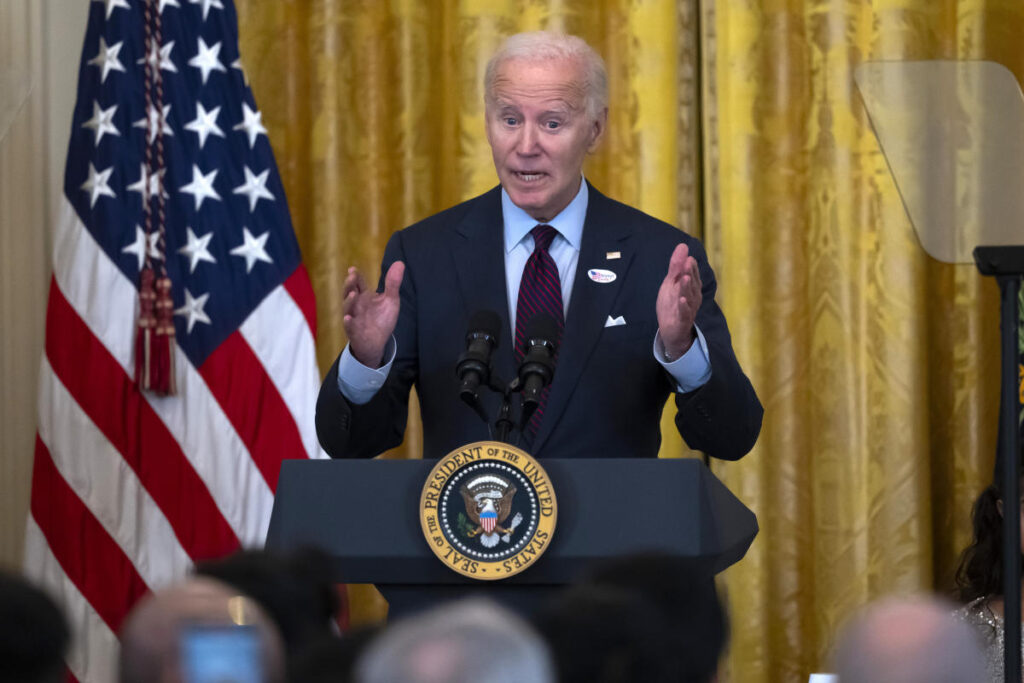The Biden administration is making a significant investment of nearly $3 billion aimed at enhancing climate-friendly equipment and infrastructure within U.S. ports, including those in Baltimore, where a tragic bridge collapse in March resulted in the deaths of six construction workers and severely impacted East Coast shipping for an extended time. President Joe Biden is set to announce these grants during his visit to the Port of Baltimore, emphasizing the federal effort to electrify port operations and improve infrastructure at 55 sites across the country. This initiative is projected to create approximately 40,000 union jobs, aid in pollution reduction, and address the broader climate crisis. The timing of the announcement, just before the upcoming Election Day, is strategically intended to bolster support for Biden’s clean energy agenda as well as showcase the administration’s commitment to facilitating good-paying jobs.
The Port of Baltimore ranks among the busiest ports on the East Coast, serving as a vital conduit for the import and export of products such as motor vehicles and agricultural equipment. Daily operations at the port rely on a robust workforce of over 20,000 individuals, highlighting the critical role of unionized longshoremen and truckers in the logistical framework. The grant announcement includes a substantial $147 million allocation designated for the Maryland Port Administration, aimed at enhancing the port’s infrastructure through the acquisition and integration of new cargo-handling equipment and vehicles, effectively steering the port toward achieving a zero-greenhouse-gas-emission status. Funding for this initiative is part of a larger program, the Clean Ports Program, overseen by the Environmental Protection Agency (EPA), which encompasses 55 ports across 27 states and territories.
These grants are made possible by the ambitious climate law approved in 2022, which represents the largest clean energy investment in U.S. history. EPA Administrator Michael Regan underscored the significance of these grants during a recent White House call, stating that U.S. ports serve as essential economic engines, vital to the supply chain and job creation. However, Regan also pointed to the environmental challenges faced by communities living near ports, who often experience detrimental air quality impacted by diesel emissions from port operations. By addressing these challenges, the Biden administration aims to reconcile environmental protections with economic growth, countering previous critiques from political opponents concerning the implications of strict environmental regulations on the economy.
The announcement of these grants follows a recent allocation of $31 million in federal funding to rehabilitate sections of Baltimore’s Dundalk Marine Terminal, reinforcing the federal commitment to the region’s port infrastructure. This funding announcement is notably timed after a settlement was reached in a lawsuit concerning the cargo ship responsible for the bridge collapse, where its owner agreed to cover over $102 million in cleanup costs. While this settlement aids immediate recovery efforts, it does not encompass the estimated $2 billion required for bridge reconstruction, prompting Maryland’s state government to file claims seeking additional damage recoveries. The investment from the Clean Ports Program is projected to significantly lower carbon emissions and reduce other harmful pollutants, indicative of a broader strategy to minimize the environmental footprint of U.S. ports.
The environmental impact of these port upgrades is substantial, with the Clean Ports Program expected to reduce carbon dioxide emissions by more than 3 million metric tons—equating to the energy consumption of about 400,000 homes for a year—along with cutting over 12,000 short tons of nitrogen oxides and other harmful pollutants. John Podesta, a senior advisor on international climate policy for President Biden, emphasized that the grants symbolize a commitment to rebuilding national infrastructure while simultaneously addressing the climate crisis, particularly benefiting communities facing disproportionate environmental burdens. These investments are part of an overarching vision to marry infrastructure development with ecological responsibility.
Finally, advocacy for environmental justice is gaining new momentum with the allocation of these substantial grants. Vernice Miller-Travis, a prominent environmental justice advocate, expressed optimism about the EPA funding, noting the transformative potential such investments have on local communities long affected by pollution. The scale of nearly $3 billion dedicated to 55 projects represents a pivotal moment in addressing longstanding environmental issues often overlooked in port operations. As the initiative begins to unfold, it signals an important shift toward prioritizing sustainable practices in conjunction with economic empowerment, aiming for a healthier coexistence of industry and environment that aligns with the Biden administration’s broader climate agenda.

